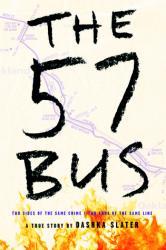
The book, The 57 Bus, by Dashka Slater, is quite the moving novel. The author does a great job of solidifying the main characters, Sasha and Richard, and develops there characters in a beautifully realistic way. The sudden transition for just normal everyday life to a calamity also flows well with the book. The fact that this story actually happens is also very interesting. Overall, The 57 Bus is a fantastic book and I would recommend it to anyone. The novel is a decent length but will have you engrossed in it until the end.
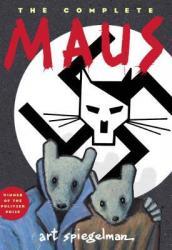
Maus 1 is a fascinating graphic history of the Holocaust and what Jewish people went through. Artist Art Spiegelman uses a variety of metaphors to depict his fathers experience as a Polish Jew during the Holocaust. I found this book incredible because it uses an animal metaphor like Animal Farm to give a deeper insight into the story. This graphic history, much like a graphic novel, uses lights and darks, white and black, and special images to draw the reader in and help them understand the hardships Vladek Spiegelman faced. I loved this book and think it is a must read book for everyone.
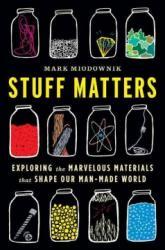
Stuff Matters is a nonfiction book on material science. The author explains everything about 6 different materials that make up our world. He goes through the history, how its made, and what is made from it. The author explains in a way that makes it a very interesting read. I found this book because I thought that the cover looked very interesting, and I it was also recommended to me by my friend. This is a great book to read if you are interested in the world around you. I would recommend it for ages 12-14.
Reviewers Grade: 9
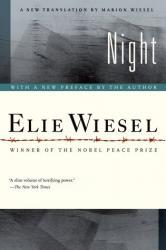
Night, by Elie Wiesel, tells of the story of the main protagonist Eliezer and the many tragedies he faced in German concentration camps during World War II. The protagonist narrates the entire book in a first-person and unbiased manner, which exposes the emotional truth of the Holocaust and provides an autobiography of the real author’s experience during the war. Eliezer, the main protagonist and counter part to the real Elie Wiesel, is forced to approach his ever-changing relationship with friends and family, many conflicts and struggles, and a plethora of situations that threaten his existence throughout the book. His reactions to these various obstacles exhibit the Holocaust survivor’s unique traits that set him apart from other Protagonists. Like Eliezer, every character in the book is developed fully with vivid traits that the real Elie remembers about them. The autobiography is fascinating and tells a compelling story while informing the reader about what really happened during the Holocaust, and I would reccomend it to anyone.
Grade: 9
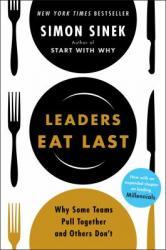
I have been looking to develop my leadership skills over the past year or so and this title was on the Sergeant Major of the Army's reading list a couple years ago. While I feel as though most leadership books tend to overlap themes and some key points, author Sinek did a great job of providing well recognized examples for each idea he attempted to convey. His references to large company names and groups helped make the ideas practical and applicable to real world situations.
I appreciated that he seemed to get the idea for his title from military members; I don't think there are many places where leadership skills exemplified and decisions are that crucial. Sinek's ideas were easy to grasp, and easily applied if you are sitting in a leadership role. I will say, not currently being in a leadership role, I found it interesting to apply what I read to the leaders I have now. There are things that I'm frustrated with that I haven't been able to put a finger on and this book conceptualized what I have been feeling. I have been able to verbalize to my
leaders some ideas and perhaps improve morale for the staff.
The version I read was the expanded version that had added chapters for the Millennial generation. I was born at the very beginning of the Millennial years, however I do not identify with that generation. I have had the opportunity to lead multigenerational groups. I have often found myself aggravated when dealing with Millennials, however this book offered some wonderful insight on how to lead them and how you might utilize the unique set of skills and passions that identify that generation.
I greatly appreciated this book and the practical spin it put on some of the ideas that I have already read about. It clarified some old ideas and offered some new. I would absolutely recommend this book for anyone who finds themselves in a leadership role.
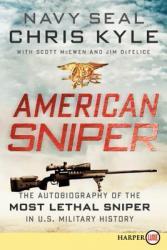
American Sniper is the biography of the most lethal sniper in the United States military, who was apart of the United States Navy SEALs. The biography encompasses the story of Chris Kyle, to which it describes the story of both his military tours and his own personal/civilian life. This autobiography adheres towards the intriguing events that Kyle experienced within his life.
American Sniper was a very well written book that did a great job describing the embellishments and challenges that Kyle faced, when he was a SEAL or just a civilian. Personally, the book is one of the best that surpasses many other titles that I have read. I highly recommend it to other readers.
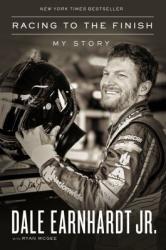
Many know the name Dale Earnhardt Jr. but you don’t need be a fan of his or even a race fan to enjoy (or listening to, as I did) this book. It’s an eye opening perspective of cause, effect, and recovery from concussions of a driver who suffered many in his career. Athletes of all ages and every contact sport and our military are suffering concussions every day and are struggling with the symptoms. Mr. Earnhardt frankly discusses his stubbornness over admitting he had an issue and the inner struggle between his career, family, fans and team. He brings up the advances in concussion recovery over a time and the advances in the therapies to aid in the recovery.

As a John Cleese fan, it was fun to be able to learn of another of his endeavors - serving as a Professor at Large at Cornell for 10 years! The texts in the book are a collection of some of his lectures over the years. They, of course, elaborate on many of his performance experiences but they also provide a broader view of his other interests.
All the Monty Python group are intelligent and creative, so it is no surprise that Cleese's intellect has been engaged on many fronts over the years. He is also much like his character in comedy in not suffering fools gladly or otherwise. I was pleased to note that he became quite involved in many different schools of learning while on the Cornell campus, and contributed to the thinking of both students and staff.
There is some repetition of topic, but as the student body would experience a turnover over the years, I would expect that important topics would emerge again anyway.
This was a fun and informative read. Since it was a series of lectures, it was easy to pick up and put down without losing the gist of things.
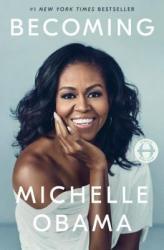
In Becoming, former First Lady Michelle Obama shares the journey of her humble roots growing up in the South Side of Chicago to becoming First Lady of the United States. The book paints a picture of a woman who has struggled with the question "Am I good enough?" for much of her life, but has persevered through her doubts. It also gives a picture of Barack Obama's political aspirations and rise to the Presidency. Even for those who disagree with Obama's politics, the book depicts the portrait of a man who entered politics because he truly desired and believed he could make the US a better place to live, and shows both Barack & Michelle Obama's commitment to public service. In that sense, it prompts the reader to stop & consider, what are my core values, and what am I fighting for to make the world a better place? It's an inspiring read when considered through this lens.
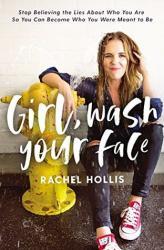
This book wasn't bad. I finished it. I even got two takeaways: Don't compare yourself to others, and don't worry about weight so much as being in shape (paraphrased). However, I did not agree with her assessment of people using prescribed drugs for anxiety, depression, and sleep as being unnecessary. She said it twice in the book. Also, she holds herself up as the standard to which we should all aspire, not on purpose, it was just a side effect of the book. It was okay for a rah rah book, but I wouldn't recommend it to my friends.
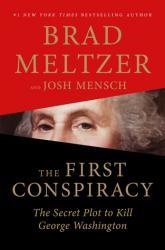
If you think you knew everything about the American Revolution, then this novel will prove you wrong. Taking place in the most critical era in America's history, this novel details a very unknown story about George Washington. The story follows him and his group of Life Guards, soldiers tasked with protecting Washington's life, as a conspiracy rages around them.
And unbeknownst to Washington, his Life Guards are now tasked by the British with killing the future president. The novel poses a very thought-provoking "What if?" question that provides for a very intense and hard to put down historical non-fiction novel. The novel provides insight into not only this virtually unknown story, but also shows the reader how close the US was to losing the Revolution. This novel is one of the best historical non-fiction books I have read. I would highly recommend to history buffs, fans of non-fiction, or anyone looking for a good read.
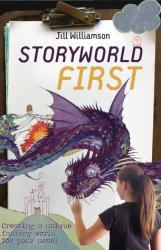
"Storyworld First" is an amazing writing book that covers everything a fantasy writer needs to create a spectacular world in their novels. This in-depth book is great for crafting three-dimensional settings, characters, and themes that will leave a lasting impression on readers. I highly recommend this book just for the enormous amount of detail alone -- you can literally create your novel's world from the ground up with this book (climate, language, religion, population, etc.) Not to mention, the author Jill Williamson is apart of Go Teen Writers, a website dedicated to helping teen writers improve their work -- this book is like the best of their website wrapped into one package! If you are a writer (even if you don't write fantasy or sci-fi), I highly recommend you pick up this book. It will change your writing forever.
Grade: 12
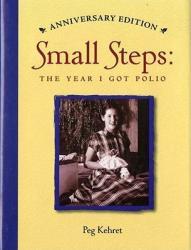
"Small Steps: The Year I Got Polio" by Peg Kehret is an interesting autobiography that gives insight to what people with Polio experienced. The main character, Peg, faints one day during school and has a high temperature so she is taken to the hospital. There she is diagnosed with Polio. This news is devastating to Peg and her family but Peg's family decides to stay positive while Peg is sad. Throughout her journey Peg gets better with the support of her parents.
I would recommend this book. "Small Steps: The Year I Got Polio" is sad but also heartwarming at times. I read this book because it is a battle book. I couldn't relate to any of the characters, however the emotions Peg felt could be related to a lot of other people. The book isn't predictable at all. It is not the best book I have read this year but I would still recommend this book as it is still good.
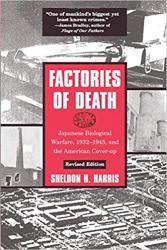
This book is for the historian who wants to know more about what happened in the world in the 1930-1940's. We all know about WWII. Most of know about the Nazi Concentration camps. A few know of the human experiments done by the Nazi's. But did you know that Japan was doing human experimentation as well? Did anyone know that Imperial Japan was active in Bacteriological and Chemical Warfare? This is an in depth look at the people behind the atrocities and those behind the cover-up. The author even talks a little about why we know little about Japanese human experimentation and a lot about Nazi Concentration camps.
I found this book enlightening and thorough. My overall view of the world during this time period is filling out and becoming more complete.
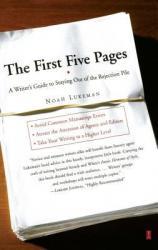
As a writer who is looking to submit to agents soon, I was hoping The First Five Pages would give me some insight into the hook that could lead to the acceptance of my book. Additionally, as an individual who also creates and publishes short story anthologies, I hoped this book would give some useful advice for writers to keep their stories out of the rejection pile. Unfortunately, while this book is almost 20 years old, much has changed since its initial publication. Everyone has computers. Word processors and other tools are in abundance. Nobody prints out manuscripts anymore.
Split into three sections and a total of 19 topics, this book doesn’t so much tell an author how to avoid rejection from agents and publishers as much as how to write. I will say from personal experience that the one topic on formatting is the most important topic to pay attention to, especially since
I’ve rejected tons of submissions that don’t follow the guidelines—albeit for additional reasons besides the formatting ignorance. There might be some tidbits in this book that will help an author create a manuscript worth accepting, but they’re buried in so much basic advice that most beginning authors will probably miss them.
This is the crux of the problem with this book: it’s not meant for authors who are ready to submit. There’s no nuance in the examples contained in this book, which doesn’t help anything when the topics are so rudimentary as to make me wonder why anyone who still has these problems with their manuscript is submitting to agents and publishers in the first place. If these writers hadn’t already heard the advice to “show, don’t tell,” then there’s no way they’re far enough in their writing career to be able to create a submittable manuscript.
Basic writing advice for authors who probably aren’t ready to submit to agents or publishers anyway, I give The First Five Pages 2.0 stars out of 5.
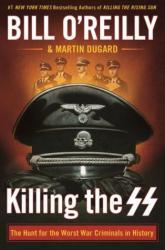
Bill O'Reilly and Martin Dugard are known for writing some fantastic historical novels, and Killing the SS upholds that idea. It is the latest installment in O'Reilly and Dugard's Killing series. This novel tells the story of the global postwar hunt for Nazi war criminals and how they were brought to justice, or how they escaped altogether. The big four written about were Josef Mengele, known as the Angel of Death, who was the physician at Auschwitz and performed horrific medical experiments on the prisoners; Adolf Eichmann, charged with managing the mass deportation of millions of Jews to death camps; Martin Bormann, who was in charge of legislation and domestic matters regarding Nazi Germany; and Klaus Barbie, who was known as the Butcher of Lyon due to the fact that he personally tortured and killed thousands of Gestapo prisoners in Lyon, France. The book itself is a fantastic read, as it is suspenseful, engaging, and is the history buff's dream. I would recommend this novel to anyone who loves history, or anyone who is a fan of the Killing series.
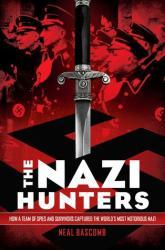
Adolf Eichmann, a notorious Nazi responsible for the deaths of millions of people during the holocaust, disappeared without a trace after the war ended. An Israeli group of spies, known as the Mossad, along with other key allies carefully locate and capture Eichmann in an attempt to bring him to a fair trial in front of the entire world. Several of the members of the mission survived concentration camps and nearly all of them had lost family there. Thus, they were determined to complete their mission, even if it lasted fifteen years and took them to the other side of the world. I highly recommend this non-fiction adventure to anyone interested in the holocaust or looking for great a spy thriller.
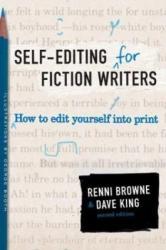
Even though this book was published 25 years ago, its advice for aspiring authors is timeless. From those just starting to veterans still polishing their craft, Self-Editing for Fiction Writers is perhaps even more relevant today than when it was initially released. After all, the pre-eminence of self-published authors has spawned a plethora of poorly-written and amateur works that seriously need some form of editing. On the plus side, the more self-published authors who take the advice in this book and put it to good use, then perhaps there will be less of a stigma against them in the future.
Breaking down the editing process into 12 distinct parts, this book shows the reader—through numerous examples—how a lousy piece of prose can be edited into something much more palatable. That being said, there are a lot of examples, some of which take up multiple pages. Occasionally, the errors are
shown in bold print, which would probably have been helpful in other sections as well, instead of relying on the reader to pick out the problems they just learned how to fix. It also would have been beneficial if the answers to the exercises were placed immediately after each section instead of in an appendix.
It is encouraging to note that this early-90s book recognizes that writing conventions change over time. While many authors want to write “the great American novel,” the definition of what that is has morphed over time as different forms of media have shaped the landscape. Despite all this, there were certainly many chapters that I was able to use to recognize weaknesses in my writing, as well as techniques that I have since become proficient in, merely to be reminded what my writing used to be like.
An excellent guide for authors of all skill levels, I give Self-Editing for Fiction Writers 4.0 stars out of 5.
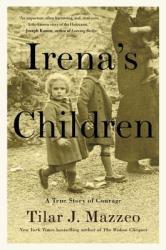
This book tells the true story of Irena Sendler, a Polish woman who saved 2,500 children during the purging of Jewish people from Warsaw during World War II. This book details the trials and tribulations faced not only by Irena but the people and children of Warsaw. The underground network formed by Irena and her many friends allowed thousands of children to be placed with different families and continue living rather than being sent to German camps. I was truly awed by the courage described in this book and the measures taken by the people of Warsaw to save the lives of children who weren't even theirs or their friends. The horrors of World War II are indescribable but the necessity of remembering it is imperative, especially when stories like this are nearly unheard of
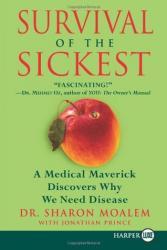
Survival of the Sickest, by Dr. Sharon Moalem, is a book that talks about the surprising connections between disease and longevity. The author does a great job of changing the reader's understanding of illness and presenting a new view of our bodies. While some people may find biology and other sciences boring, the book applies to everyone. The information is conveyed well and in a way that isn't just straight facts and boredom.
Overall, I would recommend this book to anyone, especially those who are into biology.



 Ruth Holley Library will be temporarily closed for approximately one week starting Mon., Dec. 2 to complete roof repairs.
Ruth Holley Library will be temporarily closed for approximately one week starting Mon., Dec. 2 to complete roof repairs.